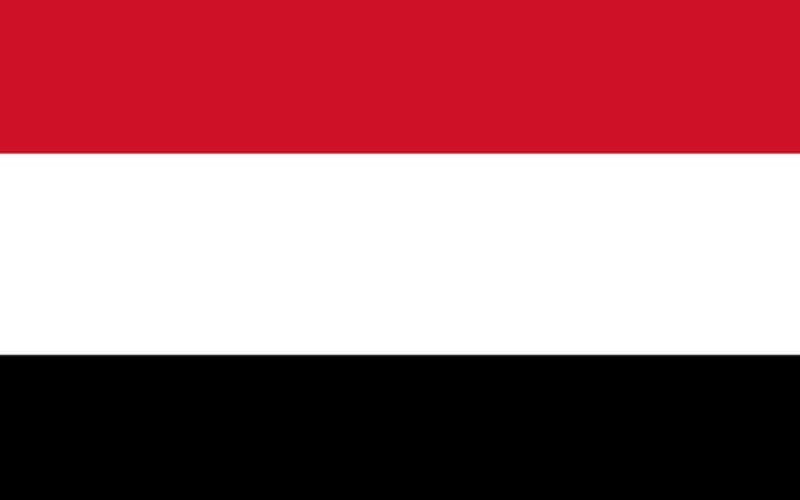Sanaa: The UN’s Yemen envoy flew into the rebel-held capital Sanaa Wednesday to push for renewed peace talks after fierce fighting for the lifeline port of Hodeida which has ramped up fears of a catastrophic famine.
Under heavy Western pressure, the government and its Saudi-led military backers have largely suspended a five-month-old offensive on the Red Sea port city as United Nations envoy Martin Griffiths spearheads the biggest peace push in two years.
But Hodeida residents reported clashes just hours ahead of Griffiths’ arrival, and a devastating all-out assault still looms as the coalition eyes a key victory in its war with Iran-backed Huthi rebels.
UN agencies say the closure of Hodeida port due to fighting or damage could put up to 14 million Yemenis at risk of starvation.
The city is virtually the sole gateway to the capital and rebel-held territory and its port is the entry point for the vast majority of food and humanitarian aid into Yemen.
Griffiths was expected to meet rebel political leaders as he attempts to revive a peace process that collapsed in September after the insurgents refused to attend talks in Switzerland.
US Defence Secretary Jim Mattis said Wednesday that peace talks had been set for early December in Sweden, where “it looks like… we’ll see both the Huthi rebel side and the UN-recognised government”.
The Huthis have said repeatedly they need stronger international guarantees that they will be given safe passage through the crippling air and sea blockade the coalition has enforced since March 2015.
– ‘Sternest test’ –
The international community is demanding in return that the rebels halt all offensive operations, particularly missile attacks on neighbouring Saudi Arabia, and commit to joining talks on handing Hodeida’s port to UN control.
“Griffiths faces the sternest test of his young tenure,” said Brussels-based think tank International Crisis Group.
“If his mediation efforts succeed in preventing a destructive battle for Hodeida, he could build momentum toward reviving a peace process.”
Both warring sides have in the past week expressed support for the envoy’s mission to convene new talks, but fierce clashes flared again in Hodeida late Tuesday.
Residents in the east of the city told AFP by telephone they could hear fighting, and reported shrapnel falling in residential neighbourhoods.
They said a limited number of people were leaving the city.
Mohammed Rashed, who is currently living in a makeshift tent to the east of the Sanaa, said he left Hodeida last week because of the clashes.
“We could not stay because of the air strikes,” he told AFP.
“My house was struck, and my neighbours’ homes were struck and people were killed.”
Doctors Without Borders (MSF) said Wednesday that its teams had treated over 500 wounded people since November 1 and that it remained “extremely worried for its patients and staff threatened by fighting very close” to its facilities in Hodeida.
– Call for truce –
Britain on Monday presented to the UN Security Council a draft resolution urging an immediate truce in Hodeida and setting a two-week deadline for the warring sides to remove barriers to humanitarian aid.
“The only solution is for all the parties to set aside their arms, cease missile and air attacks on populated areas and pursue a peaceful political settlement,” British Foreign Secretary Jeremy Hunt told parliament on Wednesday.
He said the draft resolution was “designed to get a consensus from both sides that allow talks to start before the end of this month in Stockholm”.
The rebels overran Sanaa in late 2014, when they also took control of Hodeida and its port.
A year later, the coalition intervened as President Abedrabbo Mansour Hadi fled into Saudi exile.
Both parties in the conflict stand accused of acts that could amount to war crimes.
Although Western governments have condemned civilian deaths in Yemen, they remain political and military backers of Saudi Arabia, a regional ally that buys billions of dollars-worth of arms from the United States, Britain, and France.
Those governments have come under growing domestic pressure to scale back arms deliveries since the murder of dissident Saudi journalist Jamal Khashoggi in the kingdom’s consulate in Istanbul last month.
The World Health Organization says nearly 10,000 people — mostly civilians — have been killed in Yemen since the Saudi-led intervention began.
Human rights groups believe the real toll may be five times higher.
Save the Children said Wednesday that based on UN figures, between March 2015 and this October some 85,000 children under five may have died of severe malnutrition or related diseases.
[source_without_link] Agence France-Presse[/source_without_link]

